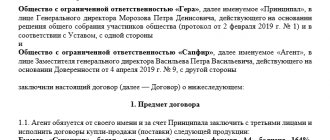What is meant by consulting services?
According to the “Treaty on the Eurasian Economic Union” (Signed in Astana on May 29, 2014) (as amended on May 8, 2015) (as amended and supplemented, entered into force on August 12, 2017): “consulting services” – services to provide:
- clarifications;
- recommendations;
- other forms of consultation, including identification and (or) assessment of a person’s problems and (or) capabilities:
* on management issues;
* on economic issues;
* on financial (including tax and accounting) issues;
* issues of planning, organization and implementation of business activities, personnel management.
The product of consulting activity is a service provided to the client. Services, as is known, are subject to taxation in accordance with the tax legislation of the Russian Federation.
How to work with a self-employed person. Instructions for individual entrepreneurs and legal entities
Every time a new client contacts me, I tell the same story - so I decided to write it and simply give the link to everyone who is interested.
What is self-employment
Self-employment or NPA (Professional Income Tax) is an experimental tax regime that can be applied to both individuals and individual entrepreneurs. I assume that it appeared as a simpler and more accessible simplified tax system.
Its main goal is to “bring out of the shadows” all freelancers who accept payment in “black cash” - and force them to pay money to the budget.
I would like to draw special attention to the fact that being self-employed is not a profession, but a preferential tax regime (as Mishustin said). That is, a self-employed person is a specialist who works for himself, and not “a Swede and a reaper and a na-dude-player” rolled into one.
And so - first the regime was introduced in 4 regions of Russia, and now it is valid throughout the Russian Federation. It turns out that self-employment is the same tax regime as the simplified tax system, PSN, OSNO and unified agricultural tax (only with some restrictions on various organizational issues).
And of course, it is more profitable to cooperate with an official self-employed person.
Benefits of working with a self-employed person
If we compare a self-employed person and an ordinary freelancer, then working with a self-employed person is more profitable for 2 reasons.
- There is no need to pay additional taxes for cashing out. And there is no need for translation either. The self-employed pays their own tax (4% or 6%).
- Everything is official. Agreement, check. If necessary, you can organize an invoice and an AVR (Certificate of Completed Work) - but the customer has no right to demand them.
However, not everything is smooth sailing.
Disadvantages of working with self-employed people
- The income of a self-employed person should not exceed more than 2.4 million rubles per year (no more than 200,000 rubles/month). If income exceeds 2.4 million rubles, then the self-employed person will have to pay personal income tax on all amounts on top, and the organization will have to pay insurance premiums (read more about this below).
- An organization cannot terminate a relationship with an employee and then cooperate with him as a self-employed person - for 2 years after his dismissal and registration.
And then there was such a fraudulent scheme - an entrepreneur “sort of fires” an employee, but begins to cooperate with him as with a self-employed person. This is such a scheme to reduce the tax burden.
But the Federal Tax Service is vigilant - and quickly discovered this scheme and clarified the punishment for it in the relevant article (clause 2, subclause 8).
- The tax office may regard relations with a self-employed person as labor relations. In this case, you face a fine - Fine - from ₽10,000 to ₽100,000. (In accordance with the Code of Administrative Offenses, Article 5.27). You will also have to pay additional taxes and insurance.
To prevent this from happening, you must demand a check from the self-employed (sample below). This is the main document of the NAP payer.
You can also get confused and find information about it on the Internet, but it’s not worth it. The check “decides”.
What is the difference between an individual entrepreneur and a self-employed person?
By and large, there is no difference between an individual entrepreneur and a self-employed person (at least after October 19, 2022, when the regime extended to the whole of Russia). Previously, there was a difference, but from July 1, 2022, the status of a self-employed person is actually equal to the status of an individual entrepreneur.
The difference between NPAs and individual entrepreneurs is that self-employed people do not have the right to hire staff and are limited in terms of revenue and types of activities.
It turns out that NAP is a tax regime for single freelancers who do not want to be individual entrepreneurs - they were given the opportunity to work officially, with a minimal tax burden and absolutely no reporting.
What documents does a self-employed person provide?
According to the Federal Law “On conducting an experiment to establish a special tax regime “Tax on professional income” dated November 27, 2018 N 422-FZ (the law on the self-employed), a self-employed person is required to provide the following documents:
- A check (which has legal force and is a full-fledged payment document).
Such a receipt is generated in the “My Tax” mobile application. You can send it by e-mail or in one of the instant messengers. You can print it or save it as a JPG and attach it to your reporting documents.
- AVR (but this is not necessary). , fill out and send to you.
You can also provide an invoice, but for self-employed people this is not necessary (I even read somewhere that it is illegal to require this). But if it’s really hot, I can conclude an agreement with Yandex or AliExpress - and then there will be an invoice. But I wouldn't want to do this.
How to pay a self-employed person then? Read on.
How can a legal entity and individual entrepreneur pay for the services of a self-employed person?
It is possible to work through a current account without paying additional tax. How? According to bank details.
For example, here are my details.
Here are the bank card details and TIN of an individual. The customer enters them into 1C and transfers the money directly from the account.
No additional taxes, personal income tax, etc. At least that's what I was paid for developing some prototypes and texts.
That's it - simple and without unnecessary hassles.
What taxes should a legal entity pay for cooperation with the self-employed?
None. If the self-employed person is not a former employee, the customer does not pay a single ruble to the tax office.
Self-employed people pay professional income tax themselves. He also receives fines.
The main proof that you don’t have to pay for a self-employed person is a receipt for payment from the My Tax application. Before transferring money from a self-employed person, you can take an electronic certificate of status as of the current date (generated automatically in the application).
If the customer has a long-standing contract with a freelancer, then from the date of his registration as a self-employed person, personal income tax is canceled. This is what the Ministry of Finance explained in a letter dated November 20, 2020 No. 03-11-11/101180.
Payment of voluntary insurance premiums for the self-employed is not transferred to the customer - social insurance clarified this in letter dated 02/28/2020 No. 02-09-11/06-04-4346. By the way, the same applies to contributions to the Pension Fund (as stated there).
But sometimes difficult cases still occur.
Something strange
In an article about cooperation with the self-employed, the author told an interesting case.
When a legal entity tries to transfer money to a self-employed person, from the bank’s point of view, this is a payment in favor of the individual and a percentage for cash withdrawal is deducted from this payment. Plus, this counts towards the withdrawal limits. As a result, the legal entity is surprised to discover that the bank withheld 20% of the next payment to the self-employed person, for example.
So: I looked into this situation - and came to some conclusions.
- The bank is not a tax agent, it is simply an intermediary. He has no right to assess taxes. Another thing is that the bank withheld the commission as “for cash withdrawal” - this is already more likely (check bank tariffs).
- A self-employed person pays tax himself - 4% for work with an individual, 6% - with a legal entity.
- Additional personal income tax can be added only in one case - if the self-employed person earned more than ₽2.4 million in a year (although in IT this is not uncommon in principle). This case is described in the Letter of the Federal Tax Service of the Russian Federation dated February 20, 2019 N SD-4-3/ [email protected] . In this case, the individual entrepreneur or legal entity must calculate and pay personal income tax and insurance premiums in relation to the former self-employed individual (if it is not an individual entrepreneur) from the date of loss of the right to apply the personal income tax (including from the date the amount of ₽2.4 million is exceeded). But the bank does not have the right to automatically charge personal income tax.
- It is also possible that fraud has occurred. You need to choose an honest bank.
There are no other reasons for resolving this issue.
Let's summarize
Cooperating with a self-employed person is profitable and simple: just transfer him money and ask for a check. In most cases, problems should not arise (by the way: I have not had a single problem in 3 years of status).
Sometimes there are problems in this regard. But the majority have already developed a solution.
Who is not a VAT payer?
Tax legislation provides for categories of taxpayers who are exempt from VAT or who are not VAT payers:
| Taxpayers | Reason for VAT exemption | Normative act |
| Organizations, individual entrepreneurs who are not VAT payers | Application of the simplified tax system | Article 346.11 of the Tax Code of the Russian Federation |
| Application of UTII | Art. 346.26 Tax Code of the Russian Federation | |
| Application of PSN | Art. 346.43 Tax Code of the Russian Federation | |
| Application of Unified Agricultural Tax | Art. 346.1 Tax Code of the Russian Federation | |
| Organizations and individual entrepreneurs exempt from VAT | Compliance with the requirements of tax legislation of the Russian Federation | Art. 145 Tax Code of the Russian Federation |
Consulting services subject to VAT
According to Art. 146 of the Tax Code of the Russian Federation, the object of taxation is the sale of services on the territory of the Russian Federation, including the provision of services under an agreement on the provision of compensation or novation. In accordance with Article 164 of the Tax Code of the Russian Federation, this type of activity is subject to VAT taxation at a rate of 18%.
Consulting services are subject to calculation and payment of VAT if the buyer of the services conducts his activities on the territory of the Russian Federation (Article 148 of the Tax Code of the Russian Federation).
Example 1. ABC LLC purchased consulting services in the amount of 29,000 rubles from a company located in Austria. There is neither a branch nor a representative office of a foreign company in the Russian Federation. In this case, taking into account the fact that ABV LLC operates on the territory of the Russian Federation, it is obliged to pay VAT to the budget of the Russian Federation, but the role of tax agent for paying tax will be taken on by a Russian organization, whose responsibility will be the calculation and payment of VAT.
What if this is a licensing agreement?
The exercise of rights under a license agreement on the territory of the Russian Federation is not subject to VAT in several cases:
- if the subject of the license agreement is exclusive rights to inventions, know-how, utility models, industrial designs, databases, etc.
- if the subject of the license agreement is the rights to use the above-mentioned results of intellectual activity.
If a Russian company, under a license agreement, acquires rights to the results of activities not listed above (clause 26, clause 2, Article 149 of the Tax Code) from a foreign supplier who is not registered with the tax authorities in the Russian Federation, it is recognized as a tax agent and must remit agency VAT to the budget of the Russian Federation.
Hello Guest! Offer from "Clerk"
Online professional retraining “Chief accountant on the simplified tax system” with a diploma for 250 academic hours . Learn everything new to avoid mistakes. Online training for 2 months, the stream starts on March 1.
Sign up
Consulting services not subject to VAT
In accordance with tax legislation, companies providing consulting services are exempt from VAT in the following cases:
| Reasons for non-payment of VAT | A comment | Normative act |
| Application of the simplified tax system | Organizations using a simplified taxation system are not recognized as value added tax taxpayers | clause 2 art. 346.11 Tax Code of the Russian Federation |
| Consulting services provided to foreign organizations that do not have a representative office in the Russian Federation | The territory of the Russian Federation is not recognized as the place of sale of services if the buyer of services does not carry out activities on the territory of the Russian Federation | clause 1.1 art. 148 Tax Code of the Russian Federation |
Example 2. ABC LLC provides consulting services located in Austria. There is neither a branch nor a representative office of a foreign company in the Russian Federation. In this case, the need to pay VAT does not arise, because the buyer of the service does not operate on the territory of the Russian Federation.
Thus, almost all consulting services are subject to VAT. The only exceptions are:
- application of the simplified tax system in the activities of an organization or individual entrepreneur;
- providing consulting services to foreign companies that do not have branches or representative offices in the Russian Federation.





